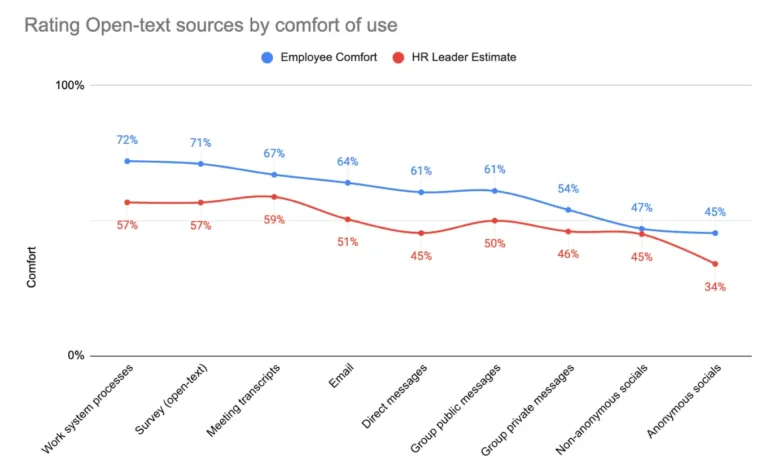
Over half of employees open to sharing data from direct messages, emails, among others

Employees across the world appear to be more comfortable in allowing employers to analyze data from their direct messages than what HR leaders initially assumed, according to a new report.
The report from Qualtrics, which surveyed 1,000 desk-based workers and 100 HR leaders in seven countries, looked into employees' comfort when it comes to the practice of passive listening.
Passive employee listening, as stated by Qualtrics, has been a proposed solution to improve employee feedback.
The practice involves the use of artificial intelligence to collect and analyze "unsolicited and unstructured data" that employees generate as part of their daily activities, such as declining a meeting, answering a question in a public channel, or emailing a customer.
"Passive listening allows employees to raise topics that don't show up in employee surveys and open up new lines of communication," said Benjamin Granger, Chief Workplace Psychologist at Qualtrics, in a statement.
According to the report, 61% of employees are open to employers analysing their direct messages to improve employee experience.
This is much higher than the 45% of HR leaders who estimated employee comfort, a significant difference of 16 percentage points.
More than half of employees further answered that they are comfortable in having their emails (64%), group public messages (61%), and group private messages (54%) analyzed. This is also higher than what HR leaders initially estimated.

Source: Qualtrics Q1 2024 EX Passive Listening Study
However, the report also noted that employees who trust their senior leadership are also more likely to share their data than those who don't (55% vs. 53%).
There are also concerns among employees on invasion of privacy, data security, and misinterpretation of data.
"Trust is foundational in developing a mutually beneficial relationship between employees and organisational leaders," Granger said. "This is especially true when it comes to introducing new programs and technologies. Leaders can build trust by highlighting how individual employees will benefit and providing ongoing transparency and autonomy over their data."